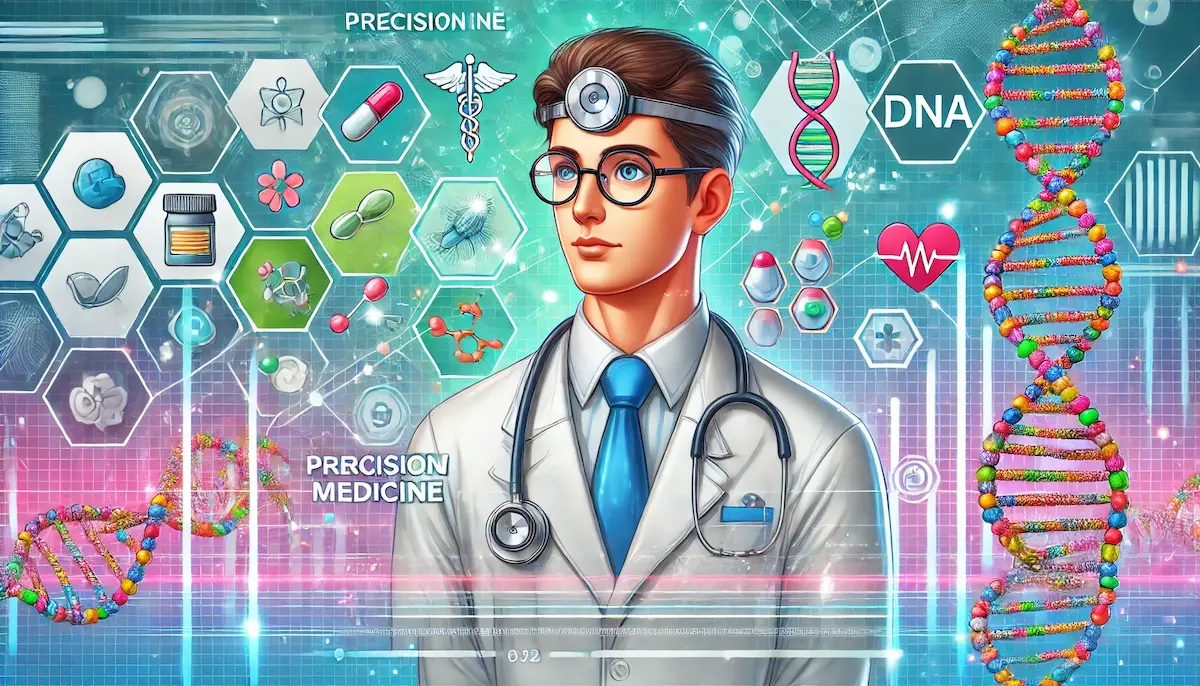Precision medicine is revolutionizing the healthcare landscape by tailoring treatments to individual patients based on their unique genetic, environmental, and lifestyle factors. This innovative approach aims to improve patient outcomes, minimize side effects, and optimize healthcare resources. Let’s explore what precision medicine is, how it works, and its potential to transform medical care.
What is Precision Medicine?
Precision medicine, also known as personalized medicine, involves customizing medical treatment to the individual characteristics of each patient. Unlike traditional medicine, which often adopts a one-size-fits-all approach, precision medicine considers the genetic makeup, environment, and lifestyle of each patient to devise the most effective treatment strategies.
How Does Precision Medicine Work?
Genetic Profiling
One of the key components of precision medicine is genetic profiling. By analyzing a patient’s DNA, doctors can identify genetic variations that may influence their susceptibility to certain diseases and their response to specific treatments. Genetic tests can reveal mutations linked to cancer, heart disease, and other conditions, enabling more accurate diagnoses and targeted therapies.
Biomarkers
Biomarkers are measurable indicators of biological processes or conditions. In precision medicine, biomarkers are used to predict disease risk, monitor disease progression, and guide treatment decisions. For example, specific proteins or genes may serve as biomarkers for certain cancers, helping doctors choose the most effective chemotherapy drugs.
Data Analysis
Advanced data analysis plays a crucial role in precision medicine. By integrating genetic information with electronic health records, lifestyle data, and environmental factors, sophisticated algorithms can identify patterns and correlations that inform personalized treatment plans. This holistic approach ensures that all relevant factors are considered in medical decision-making.
Targeted Therapies
Precision medicine often involves the use of targeted therapies, which are designed to specifically attack disease-causing cells or molecules without affecting healthy cells. These therapies are particularly effective in treating cancers with known genetic mutations. By targeting the underlying cause of the disease, these treatments can be more effective and have fewer side effects than conventional therapies.
Benefits of Precision Medicine
Improved Treatment Outcomes
By tailoring treatments to individual patients, precision medicine can significantly improve treatment outcomes. Patients are more likely to respond positively to therapies that are specifically designed for their genetic and molecular profiles, leading to better recovery rates and overall health.
Reduced Side Effects
Traditional treatments often cause side effects because they do not distinguish between healthy and diseased cells. Precision medicine minimizes these side effects by targeting only the disease-causing cells or pathways, making treatments safer and more tolerable for patients.
Early Detection and Prevention
Precision medicine enables early detection of diseases by identifying genetic and molecular markers associated with disease risk. This allows for timely intervention and preventive measures, potentially stopping the disease before it progresses. Early detection is particularly beneficial in conditions like cancer, where early treatment can significantly improve survival rates.
Cost-Effective Healthcare
While the initial costs of genetic testing and data analysis may be high, precision medicine can ultimately reduce healthcare costs by eliminating ineffective treatments and focusing on therapies that are more likely to succeed. This targeted approach can reduce hospital stays, minimize the need for additional treatments, and improve overall healthcare efficiency.
Applications of Precision Medicine
Oncology
Cancer treatment is one of the most promising applications of precision medicine. By identifying genetic mutations in tumors, doctors can select targeted therapies that are more effective and less toxic than traditional chemotherapy. Precision medicine is also used in developing personalized cancer vaccines and immunotherapies.
Cardiovascular Disease
Precision medicine is used to assess genetic risk factors for cardiovascular diseases, such as heart disease and stroke. Genetic tests can guide the use of specific medications and lifestyle interventions to prevent or manage these conditions more effectively.
Rare Genetic Disorders
For patients with rare genetic disorders, precision medicine offers the possibility of accurate diagnoses and targeted treatments. Genetic testing can identify the specific mutations responsible for these conditions, allowing for the development of personalized treatment plans and potential gene therapies.
Pharmacogenomics
Pharmacogenomics is the study of how genes affect a person’s response to drugs. By understanding these genetic influences, doctors can prescribe medications that are more effective and have fewer side effects for individual patients. This personalized approach to drug therapy is a key aspect of precision medicine.
Challenges and Future Outlook
Despite its potential, precision medicine faces challenges such as high costs, data privacy concerns, and the need for extensive research and clinical trials. However, ongoing advancements in genetic research, data analytics, and medical technologies are driving the growth of precision medicine.
The future of precision medicine is bright, with the promise of more effective, personalized, and efficient healthcare. As technology continues to evolve and more data becomes available, precision medicine will play an increasingly central role in the medical field, offering hope for better health outcomes and improved quality of life for patients worldwide.
Blockfine thanks you for reading and hopes you found this article helpful.
